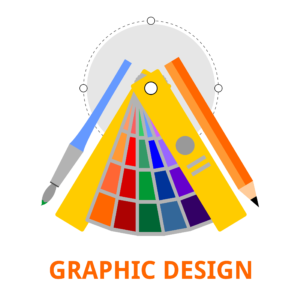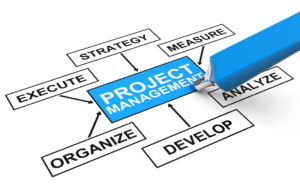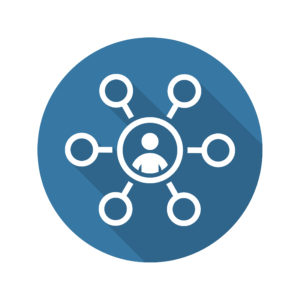Job Description of an Instructional Designer – 6 Areas to Consider

In the time I have been working as an Instructional Designer, I have done and learned so much that sometimes I think Instructional Designers are the heroes in the eLearning industry. In this post, I’ll explain the main 6 skill areas that instructional designers could cover in their duties. The idea is to have a summary of what we do or could potentially do in our roles, and this can also serve as a guide for a job description of an Instructional Designer.
Some organizations might have big teams in their learning and performance departments, where each person has a particular role. These big teams might have roles for graphic designers, programmers, testers, content developers, analysts of flow and logic of the learning solutions, Learning Management System (LMS) specialists, digital media creators and project managers.
However, not every organization has the capacity to have a big team to develop and deliver eLearning solutions. For situations like this, that might be the most common case, it is better to be prepared in these 6 areas I have identified in this post.
As an Instructional Designer you are expected to have, or at least be willing to learn, the following skills and knowledge:
1.- Learning Specialist 
- Understanding of learning theories, especially adult learning theories.
- Understanding of instructional design strategies to produce effective learning experiences that engage learners.
- Understanding of the design of assessments and practical activities that will allow instructors to gather evidence of competency in the courses delivered.
- Understanding of instructional design models such as ADDIE and others to have a systematic approach in the implementation of online learning solutions.
- Experience designing and delivering eLearning solutions in the corporate sector or in the academic area.
- Expertise in storyboarding the eLearning solutions.
- Expertise in storytelling for the digital environment, creating narratives and engaging stories related to the learning solution.
- Experience developing branching scenarios.
- Understanding of gamification.
- Experience designing eLearning solutions liaising with Subject Matter Experts (SME) and adding a variety of activities relevant to the content.
- Experience evaluating the effectiveness of the eLearning solution using a variety of tools to measure and gather relevant data.
- Capacity to design different learning solutions, not only in the online space, but also for face-to-face training sessions.
- Capacity to determine if an online learning solution is necessary and provide recommendations on different possible solutions.
2.- Graphic Designer 
- Knowledge of colors, branding and layout of the eLearning modules.
- Experience creating graphics and multimedia elements such as videos, images, audio and photographs for the eLearning solutions.
- Knowledge of usability and accessibility guidelines to produce professional solutions that will cater for different types of learners.
- Understanding of user experience design and principles.
- Understanding of typography, space and the general look and feel of the eLearning solutions.
- Basic understanding of web design.
- Capacity to design using the branding of the organization or develop the brand of the eLearning solution when required.
3.- Developer 
- Knowledge of authoring tools such as Articulate or Captivate.
- Knowledge developing quizzes, drag-and-drops and other interactions.
- Understanding of HTML, at least at a basic level.
- Basic understanding of JavaScript and the capacity to embed small JavaScript routines into the eLearning solutions.
- Knowledge of SCORM file testing and debugging.
- Basic understanding of web development.
- Capacity to analyze and find solutions to issues with the eLearning solutions and the Learning Management System (LMS).
- Capacity to learn new software and tools related to game development, animations, screen capture, mobile apps, Virtual Reality (VR), Augmented Reality (AR) and others that might arise in the different projects.
- Experience working with different Learning Management Systems.
- Capacity to synthesize large volumes of information.
4.- Technical Support 
- Capacity to provide support to learners when issues arise with the eLearning solutions.
- Capacity to respond on time to learners and other users of the LMS.
- Be part of the technical support team when required to attend LMS inquiries such as password reset, create courses in the LMS, create reports and other general inquiries related to the eLearning solutions and the LMS.
5.- Project Management
- Organizational skills and efficient management of time to work in different projects and deliver results on time.

- Capacity to estimate costs and resources necessary to the successful design and delivery of learning solutions.
- Capacity to work effectively in a team with SME and project stakeholders from different areas of the business.
- Experience producing reports using the LMS reporting functionality.
- Experience consulting with customers to understand their requirements.
- Experience documenting meetings, discussions and the entire consulting process of the learning solutions.
- Good communication skills to liaise with learners, administrative staff, SME, project stakeholders, customers and other team members.
6.- Other Duties
- Create surveys and other instruments to gather learners’ feedback on the learning solutions.

- Capacity to develop policies related to the eLearning process, evaluation and assessments.
- Capacity to deliver face-to-face training and serve, as required, as a trainer and facilitator in corporate or technical training sessions.
- Experience developing instructor’s guides, technical documentation, learner’s manuals and orientation modules.
- Experience developing templates for course creation, consulting, reporting and other relevant documentation.
- Experience providing support to learners with low levels of digital and computer literacy.
- Willingness to train other colleagues and share knowledge within the team.
- Attend webinars, conferences and courses to maintain currency.
Conclusion
As you can see, sometimes the Instructional Designer must wear different hats and perform duties in different areas. Our work not only stays with designing learning solutions, but we can at times solve problems related to programming, the LMS, testing, developing policies, creating reports, filming a video, analyzing surveys and so much more.
In this challenging and amazing career, there is no time to get bored, you are constantly learning and doing a variety of activities in a daily basis.
If the skills and knowledge within these 6 areas seem to be overwhelming and you think you are falling short to tick them off, please don’t get discouraged. Having the capacity to learn new tools and face new challenges with a positive attitude is a great start to slowly build experience and the confidence to be a great Instructional Designer.
Feel free to leave your comments below and don’t hesitate to ask any questions. I’m always happy to help.
See you next time 🙂
Thais

2 Responses
This article was a very interesting read. I liked how you summed up the skills needed to qualify for a job as a instructional designer. It shows that instructional designers must have a lot of talents as well as put in a lot of work to be successful in their field.
Overall,it was a very informative and easy to read article, and I enjoyed it fulling.
Thank you and keep up the good work.
Thanks so much for your comment. There is so much to learn for sure but that makes it an interesting career.